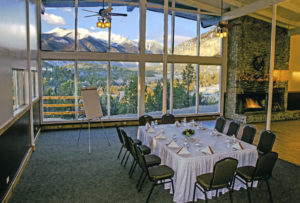By Nicole Marsh, CMP, DMCP
One of the best investments a company can make is by investing in its people by planning a company retreat. A retreat is an opportunity for employees to come together away from the office to focus on the growth of the team and the future of the company, while also reflecting on the past. It’s great for overall morale and also has been proven to increase productivity.
Depending on the size of the company, a retreat can be the entire company or a specific division or department. Retreats also can be as short as an afternoon or a full day or for multiple days with overnight lodging. They can happen monthly, quarterly or annually. Retreats are especially important for companies with offices in multiple locations or with employees who telecommute. The important factor being to bring them together and into an environment that fosters camaraderie with the intent to focus and refresh.
First things first … the location. An article in the Huffington Post reports that changes in environment stimulate creativity and also notes that connections with nature have been proven to improve an employee’s performance at work. Whether it is a park, a nearby hotel with outdoor reception space or a resort that offers both. It is an important step to take the time to plan a company retreat by first choosing a location away from the office to avoid distraction and allow attendees to hit the reset button once they arrive. Colorado offers many options for venues and getting outdoors.

It’s easy for groups to get a retreat break on Aspen Mountain due to the in-town location. Courtesy Aspen Skiing Company and Matt Power.
Next, the agenda. It’s imperative that the agenda offers time for both work and fun. Also, do not try to cram too much into the agenda so that it all gets diluted. When focusing on the work agenda, create opportunities for employees to feel valued and heard. Limit the typical leadership talking heads and put managers in charge of leading discussions. This encourages sharing at all levels within the company and allows colleagues to foster trust and communication amongst each other. A report in the Harvard Business Journal found that teams communicating directly with each other—and not just with management—are more productive and creative. Give time to reflect on the past and ample time to work on goal setting and initiatives to move teams and the company forward.
Consider demographics and abilities for activities and team-building. It is vital to the overall success of the retreat that everyone can participate in and enjoy what is planned. Don’t make it mandatory for employees to do something that they may not have the ability to or feel comfortable doing. If you have a large group and can offer multiple choices of Colorado activities such as hiking or rafting, offer both beginner and advanced options for those that are a bit more adventurous. Many companies also use this time to do a community service project and give back to their local communities or to the destination they are visiting. A reputable destination management company (DMC) can assist in providing both the activity options and CSR activities suitable for your group.

Attendees can take a horseback ride from Gateway Canyons’ Palisade Ranch, located in Gateway, Colorado. Courtesy Gateway Canyons.

Gateway Canyons has casitas that work well for small retreats. Courtesy Gateway Canyons.
Remember the follow-up. After the retreat, have department heads or leadership follow up on the goal setting, changes to be implemented as a result of the time together, and items that were put in the “parking lot.” If there was work done in breakouts or smaller groups, be sure to also report the outcomes to the rest of the company. Lastly, don’t forget to survey to the team for their feedback on the retreat. Set up the survey in advance so it can be sent immediately upon return, as you want them to remember anything they might have changed or what was particularly great about it. Their feedback will help you when planning subsequent meetings or the next retreat.

Gather up and utilize information shared at the retreat. Courtesy Mount Princeton Hot Springs Resort near Buena Vista.
In the end, a well-planned and executed corporate retreat challenges, unites and propels your team to the next level of success. The right balance of work and fun is not only great for morale and camaraderie, it strengthens the team and deepens trust and communication with one another. Productivity has been proven to increase while goals are defined and strategies are laid out with laser focus for the months ahead.
Nicole Marsh, CMP, DMCP is a partner at Imprint Group, a DMC Network Company with offices in Colorado, Florida and Las Vegas. Nicole and her business partner, Chris Starkey, and their team of nearly 50 are celebrating 50 years in business in 2019.
